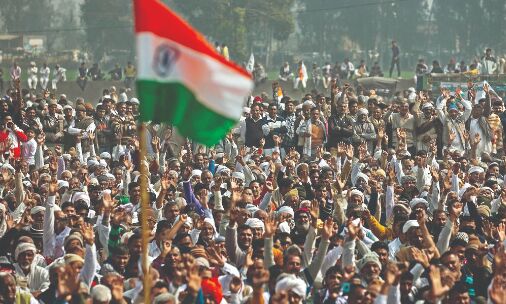Restoring our reputation
After three damning foreign reports on lack of freedoms in India, it’s time for some aggressive action to save our reputation of being the world’s largest democracy

For any brand, its reputation is key. Ask any image consultant, and pat comes the reply — protect your brand's reputation. The saleability of the brand, its trustworthiness, and reliance all ride on the brand's image. In life as in business, marketing gurus will tell you, that rebuilding credibility is often the most difficult task. Now this brand can be a bar of soap, a TV, a human being or even a nation. In the early part of the last seven years, India, the brand, set out to be a household name. As one of the emerging nations that had avoided the 2008 recession and was riding high on robust economic growth, India was that headliner guest at every party. All nations wanted a piece of the growing pie and desired a foothold in the expanding, willing, untapped Indian market.
The 'India story' has been facing quite a few brick bats in the international arena. I mean, forget about Indian media, government institutes or NGOs. Only a handful remain truthful and unbiased; most have been stripped off their credibility or made to remain toothless, silent voyeurs. The great Indian dream lies downgraded, first by rating agencies and now by freedom and democracy watchers. We have had a triple whammy in the last few weeks. First came out the '2020 Democracy Index' by the Economist Intelligence Unit (EIU). India's rank had dropped from 51st in 2019 to 53rd. The decline was due to "democratic backsliding" by administrative bodies and "crackdowns" on civil freedoms. So, what if India's overall score dropped from 6.9 in 2019 to 6.61 in 2020 and we were part of the 'flawed democracy' club along with the US, France, Belgium, and Brazil. We were nowhere close to the top 5 nations — Norway, Iceland, Sweden, New Zealand, and Canada — but in true 'desi' style, as long as we were faring better than our neighbours, we were chuffed. The only saving grace — India was still ahead of its neighbours — Sri Lanka, Bangladesh, Bhutan, and Pakistan.
Then came US watchdog, Freedom House's 'Freedom in World' report with more depressing findings. We were now only a 'partly free' country and not a 'free' one the downgrade reminded us. Seeing the score of 67/100, I felt as heartbroken as I would have if I had received such shoddy marks in school. The report, which felt more and more like my recurring nightmare as a student, went on to elucidate that this was not just a one-year rare occurrence, it's a 'multiyear' pattern and India's score had shrunk from 75 in 2018, 71 in 2019 to 67 in 2020. The report stated "rising violence and discriminatory policies affecting the Muslim population" and "crackdown on expressions of dissent by the media, academics, civil society groups, and protesters" by the central government as reasons for our downfall (sorry, I mean downgrade, but can downfall be far behind?)
Just as we were reeling from the two punches and just about steadying our stance, a southpaw by Sweden's V-Dem (Varieties of Democracy) Institute's Democracy Report removed us from being the world's largest democracy to being an 'electoral autocracy'. The report refers to "muzzling" of media and invoking of defamation and sedition laws as reasons. And this time we didn't perform better than our neighbours either. The report calls India as autocratic as Pakistan in matters of censorship and worse than Bangladesh and Nepal. The "government in India has used laws on sedition, defamation, and counterterrorism to silence critics," the report said adding that over 7,000 people, most of whom have been critics of the ruling party, have been charged with sedition since 2014.
The government has had its say defending itself, passing the buck to state governments in matters pertaining to the state list, and has once again reassured its commitment to shielding citizens' freedoms. We can scoff at these foreign reports and brush them aside as a conspiracy against the Indian government, or in a hallelujah moment, we can go about actually safeguarding what we may be losing fast. We are still free — there is no doubt — but the constant attacks on critics, journalists, activists, farmers, students, portray an autocratic state that is unwilling to proffer space for dissent. The backbone of a democracy is the freedoms and rights provided to all citizens to disagree or protest. Let's not suffer from Stockholm syndrome; let us accept things for what they are and fix them before it's too late. Manage the crisis and build back the reputation — that's Brand-building 101.
The writer is an author and media entrepreneur. Views expressed are personal



